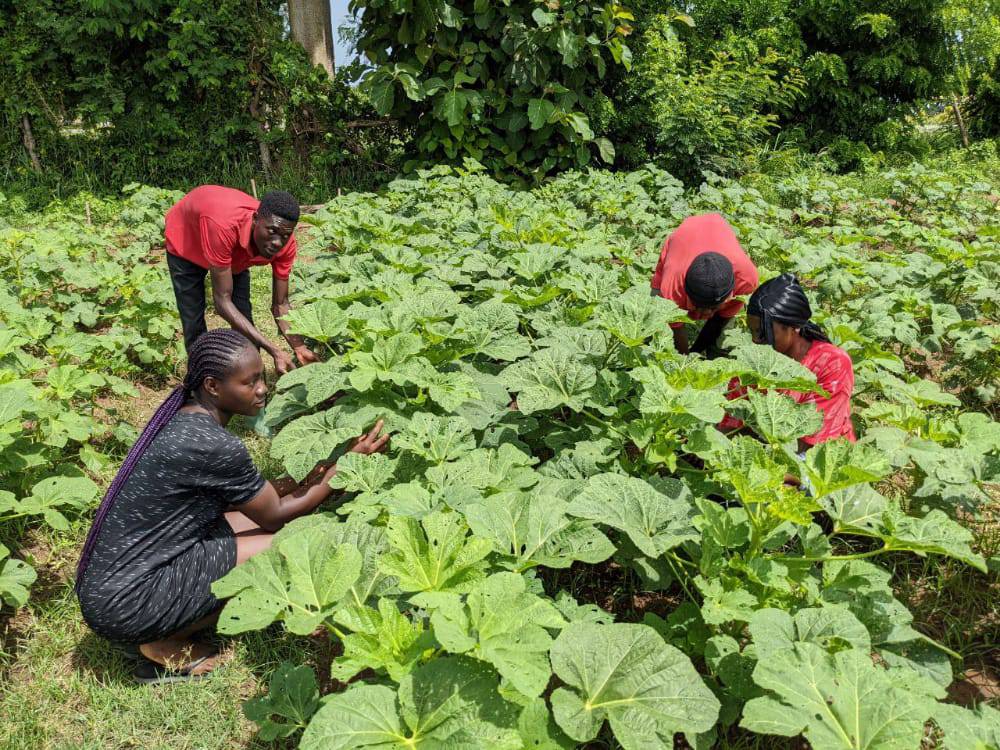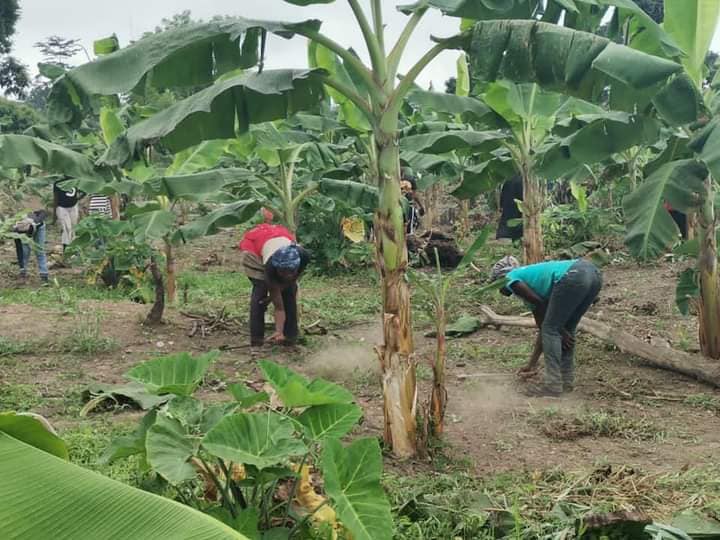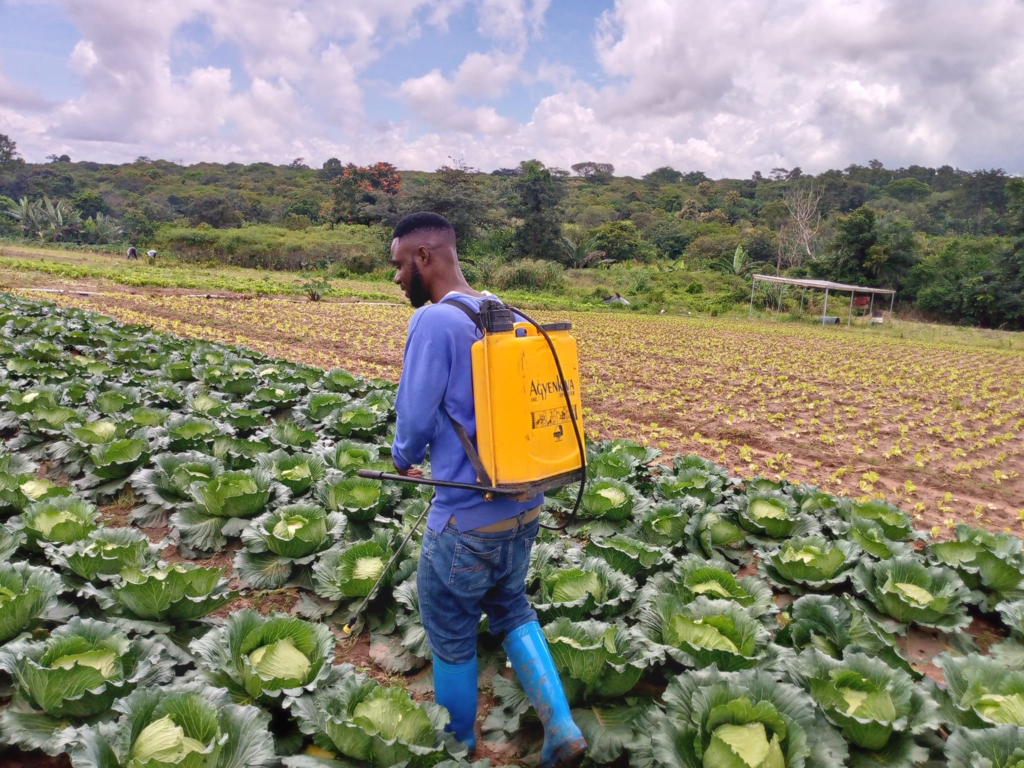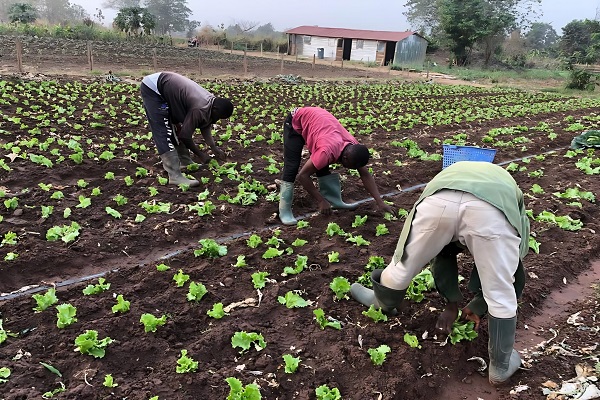The Bono regional chapter of the Tax Justice Coalition Ghana has urged the government to reaffirm its commitment to driving agricultural transformation across Ghana.
A statement signed by the Bono Regional Secretary of Tax Justice Coalition Ghana, Simon Asore, said the current government must have a strategic agenda indicating that it will strengthen partnerships with key national and international agricultural stakeholders.
According to the coalition, the government of the day should be able to demonstrate how it will empower farmers, enhance soil fertility, promote sustainable agricultural practices, and ensure food security for all.
"We expect our politicians to develop expertise in research to develop the appropriate technologies for soil health, farm productivity, and market and food system development.
These, we at the Bono regional chapter of the Tax Justice Coalition Ghana believe could positively change and drive inclusive growth in the agricultural sector,” the statement added.

It said political parties other than the governing New Patriotic Party (NPP) must also develop the appropriate programmes in their manifestos specifying how to address the numerous challenges confronting smallholder farmers.
“We can mention lack of appropriate technologies, expensive but low-quality agricultural inputs, lack of synergies and valuable collaborations as militating against the smallholder,” the statement stressed.
It suggested that the challenges confronting the agricultural value chain actors, especially smallholder farmers, could be fixed through strategic partnerships and a focus on improving the value chain.
"All political parties, including the NPP with their strategies, must create the enabling environment for agricultural stakeholders to use their collective strengths, knowledge and resources to overcome challenges, grasp opportunities and create a better future for farmers in our communities,” the statement noted.

The Bono regional chapter of the Tax Justice Coalition Ghana thought that through collective effort and unwavering commitment, the full potential of agriculture could be realised as a tool for sustainable development and prosperity for the country.
The coalition further urged the government to focus on soil health and the empowerment of the smallholder farmer to address the global food security challenges.
“The key to global food security starts with the soil, so we must strive to develop better organic fertiliser and production technologies, train the smallholder farmers on these improved technologies, and connect the farmers to efficient and profitable markets.

The focus should be collaboration with strategic partners to build local capacity and ensure sustainable impact to help our smallholder farmers improve their livelihoods,” the statement added.
It also said, “One critical aspect the politician must consider is interventions to significantly boost the production of higher quality food by eliminating waste and losses of agricultural water, land, seeds and organic fertilisers”.
The coalition also recommended the promotion of climate-smart and resilient farming systems and technologies among smallholder farmers to reduce the adverse environmental impacts associated with agricultural productivity.
It promised to join the Ghana chapter of the Africa Food Systems Parliamentary Network (AFSPaN) to ensure that the government allocates adequate resources to the agricultural sector to help improve food security.
“We are keenly following Ghana’s performance under the Comprehensive Africa Agriculture Development Programme (CAADP) to ensure the government meets the targets set.
Under CAADP, African governments are required to commit up to 10 percent of their Gross Domestic Product (GDP) to agriculture.
The statement noted that the government should increase support for smallholder farmers because it is the best choice to transform agriculture from its peasant nature through middle to large-scale agribusiness.
The coalition expressed dissatisfaction about the failure of many agricultural programmes initiated by the government, attributing it to lack of access to resources by the people who make farming part of their passion.
“Ghana is well-endowed naturally to make agriculture the foundation for national development through investment in agro-processing, proper packaging of agricultural products for exports, training of the youth in agri-business among others," he said.
Latest Stories
-
Western Regional Minister leads quick-fix efforts on Asem-asa N1 highway
7 minutes -
Ivory Coast cocoa farmers warn of mid-crop supply shortages due to dry weather
9 minutes -
‘Presidency is not a throne of privilege’ – CDM tells Mahama
13 minutes -
Bawku conflict: The truth must be told – Collins Owusu Amankwah
32 minutes -
Ghanaian health workers face high risk of low back pain, KNUST study finds
43 minutes -
‘Bawku youth are being radicalised and armed’ — Peter Toobu worried about escalating tension
45 minutes -
‘Death is everywhere’: Sudan camp residents shelter from attacks
1 hour -
‘This is a national conflict, let’s treat it that way,’ says Peter Toobu on rising Bawku crisis
2 hours -
‘Police must not be neutral in Bawku, they must be impartial’ – Peter Toobu
2 hours -
Oman hails King Mohammed VI’s efforts in defending Holy City
2 hours -
Oman reaffirms support for Morocco’s territorial integrity and autonomy proposal
2 hours -
‘This is no longer tribal, it’s armed rebellion’ – Minority warns as Bawku tensions escalate
3 hours -
Do not forget our roads – Penyi Traditional Authorities to government
3 hours -
More than 400 killed by rebels in Sudan says UN
3 hours -
‘Bawku deserves peace’ – Minority calls for depoliticisation as conflict escalates
4 hours

